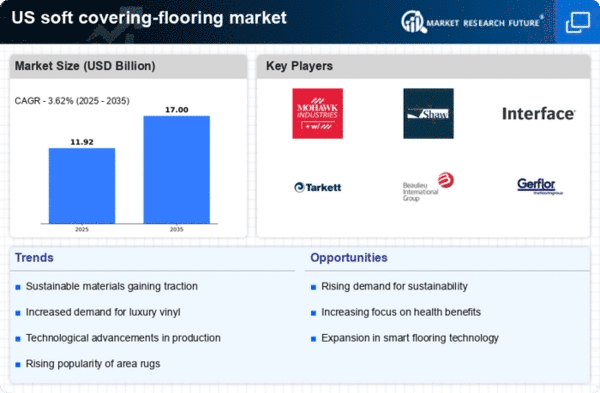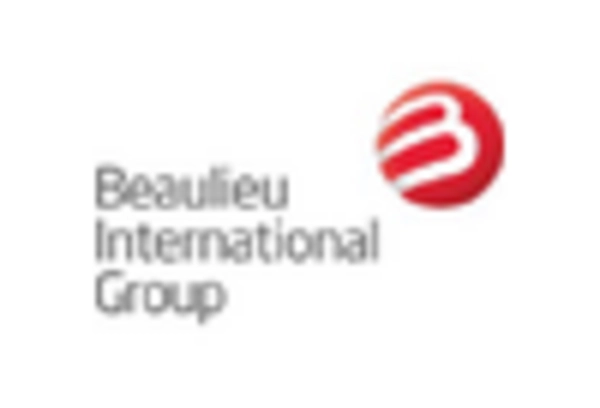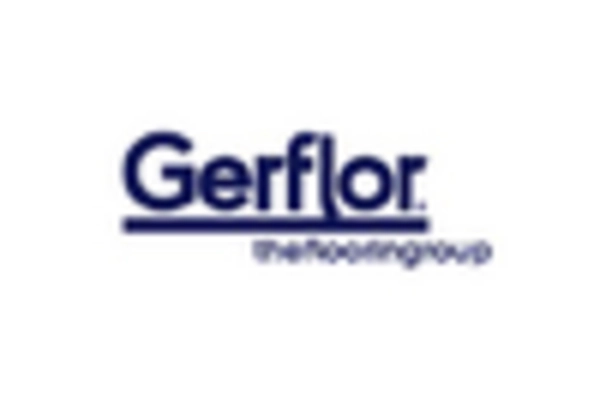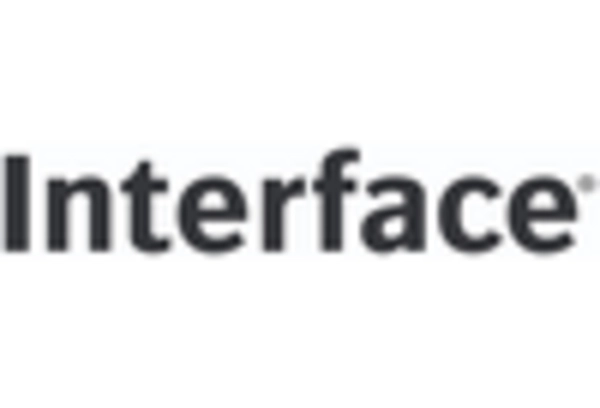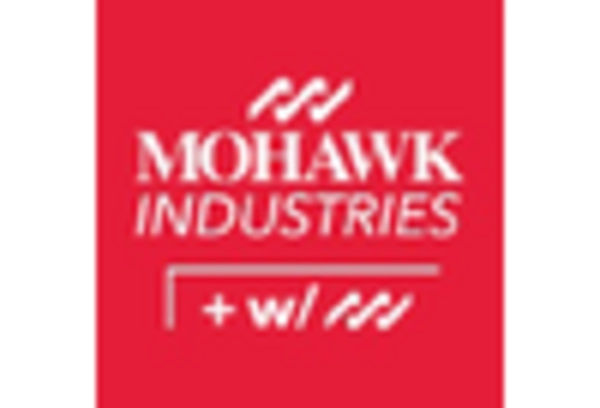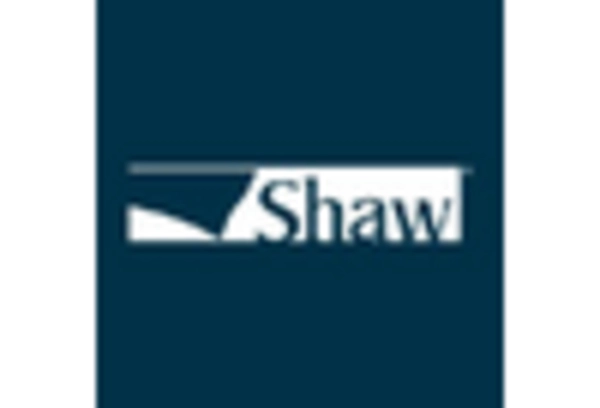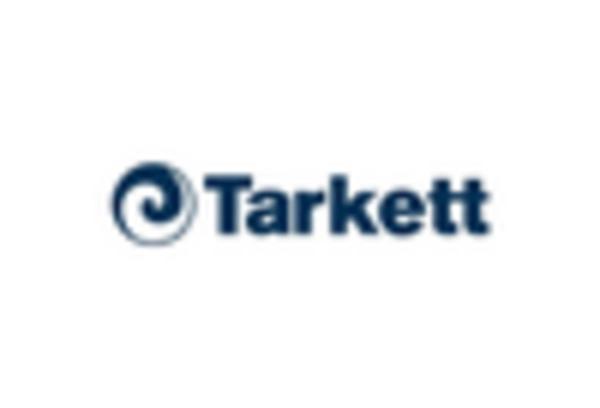Expansion of E-commerce Platforms
The soft covering-flooring market is witnessing a significant transformation due to the expansion of e-commerce platforms. As online shopping becomes increasingly prevalent, consumers are turning to digital channels to purchase flooring products. This shift is supported by the convenience and variety offered by online retailers, allowing customers to explore a wide range of soft flooring options from the comfort of their homes. Data shows that e-commerce sales in the flooring sector have grown by over 20% in recent years. This trend presents a substantial opportunity for businesses in the soft covering-flooring market to enhance their online presence and reach a broader audience.
Influence of Interior Design Trends
The soft covering-flooring market is significantly impacted by evolving interior design trends that emphasize aesthetics and functionality. As design preferences shift towards minimalism and sustainability, soft flooring options are being reimagined to align with these trends. For instance, the use of neutral colors and eco-friendly materials is gaining traction among consumers. This shift is reflected in the increasing demand for soft flooring products that not only enhance the visual appeal of spaces but also adhere to sustainable practices. Consequently, manufacturers in the soft covering-flooring market are adapting their offerings to meet the changing tastes and preferences of consumers.
Growing Awareness of Indoor Air Quality
The soft covering-flooring market is increasingly influenced by the rising awareness of indoor air quality among consumers. As individuals become more conscious of the health implications associated with indoor pollutants, there is a growing preference for flooring materials that contribute to better air quality. Soft flooring options, particularly those made from natural fibers, are perceived as healthier alternatives. Studies indicate that carpets can trap dust and allergens, preventing them from circulating in the air, which appeals to health-conscious consumers. This trend is likely to drive demand for soft covering-flooring solutions that promote a healthier indoor environment.
Rising Consumer Preferences for Comfort
The soft covering-flooring market is experiencing a notable shift as consumers increasingly prioritize comfort in their living spaces. This trend is driven by a growing awareness of the psychological and physical benefits of soft flooring options, such as carpets and rugs. Research indicates that approximately 60% of homeowners in the US prefer soft flooring for bedrooms and living areas due to its warmth and cushioning properties. As a result, manufacturers are focusing on producing high-quality, plush materials that enhance comfort. This consumer preference is likely to propel the soft covering-flooring market, as more individuals seek to create cozy and inviting environments in their homes.
Increased Investment in Home Renovations
The soft covering-flooring market is benefiting from a surge in home renovation activities across the US. With homeowners investing in upgrading their interiors, the demand for soft flooring solutions is on the rise. Data suggests that the home improvement market has seen a growth rate of approximately 5% annually, with flooring being a significant component of these renovations. Soft flooring options, such as carpets and area rugs, are often chosen for their aesthetic appeal and comfort. This trend indicates a robust opportunity for manufacturers and retailers in the soft covering-flooring market to cater to the evolving needs of homeowners looking to enhance their living spaces.


